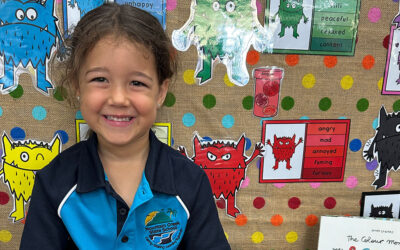.hoosing the right early learning environment for your child is a pivotal decision that can profoundly shape their development. With countless childcare options available, parents often feel overwhelmed when seeking a centre that aligns with their family’s values. For those prioritising a respectful and nurturing approach to early childhood education, the RIE Philosophy (Resources for Infant Educarers) and RIE Approach offer a compelling framework.
What is the RIE Philosophy?
The RIE Philosophy began with Magda Gerber, an early childhood educator originally from Hungary. Gerber was extremely passionate about infant care and was very impressed by paediatrician and infant educator Emmi Pikler. In particular, Pikler’s past success with creating environments that provided opportunities and encouragement for children to reach their full potential.
Inspired by Pikler’s core values of respect, trust, and acceptance, Gerber was inspired to create her own philosophy known as RIE® (Resources for Infant Educarers), the Educaring Approach®. The main goal of the RIE approach is to create an authentic child who feels secure, autonomous, competent, and connected to the world around them. A strong sense of self and an even stronger connection to the people and places around them promotes growth and happiness in life, beginning as infants and continuing on into adulthood.
The Educaring Approach is based on the following set of principles:
- Basic trust in the child to be an initiator, an explorer, and a self-learner.
- An environment for the child that is physically safe, cognitively challenging and emotionally nurturing.
- Time for uninterrupted play.
- Freedom to explore and interact with other infants.
- Involvement of the child in all care activities; child being an active participant rather than a passive recipient.
- Sensitive Observation of the child in order to understand the child’s needs.
- Consistency and clearly defined limits and expectations to develop self-discipline.
Benefits of the RIE Approach
Your baby will have the opportunity to eat, sleep and play according to their individual needs. By anticipating individual caregiving activities, caregivers can respect personal rhythms with feeding, nap times and activities to suit individual infants.
With the RIE philosophy, caregiving is an opportunity for one-on-one time. During this time the caregiver talks with, listens to and allows time for the baby to respond. When caregiving needs are met, infants have the opportunity to engage in play, and the caregiver’s attention facilitates the optimum development of motor skills, problem-solving and self-esteem.
Kerry Hanson from Little Characters, who has completed the RIE® Foundations: Theory and Observation course, says that this approach to caregiving fosters connection through the building of relationships that support quality pedagogy. In Magda Gerber’s own words, “RIE Approach helps adults raise children who are competent, confident, curious, attentive, exploring, cooperative, secure, peaceful, focused, self-initiating, resourceful, involved, inner-directed, aware and interested”.
Keep Reading
The Sunshine Coast Early Learning Centre where you can rewild your child
The Mooloolah Valley early learning centre where every day is an adventure
Finding literacy in the great outdoors


